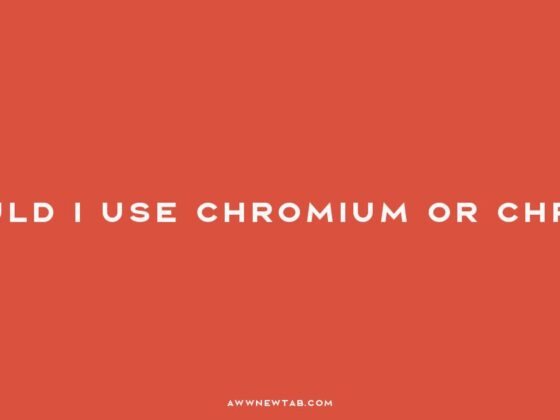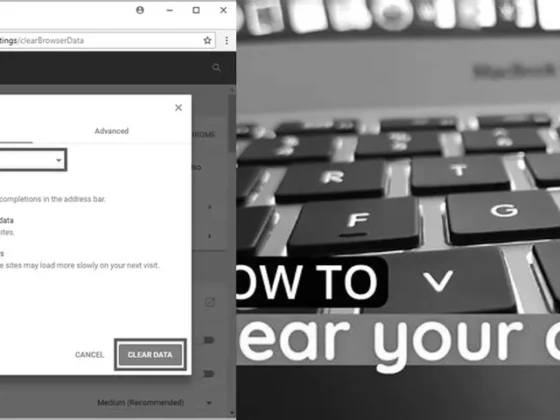How Do I Know If My Tv Supports Chromecast: Are you tired of staring at your outdated TV while your friends rave about the wonders of Chromecast? Well, worry no more! In this blog post, we’ll unravel the mystery and help you determine if your TV supports Chromecast. Whether you’re a tech-savvy enthusiast or a casual viewer, we’ve got you covered. Get ready to dive into the world of HDCP compliance, HDMI port capabilities, built-in Chromecast technology, and more. Say goodbye to FOMO (Fear Of Missing Out) and hello to the ultimate streaming experience. Let’s get started!
Understanding HDCP Compliance for Chromecast Compatibility
The first step in determining whether your TV supports Chromecast is to understand what High-bandwidth Digital Content Protection (HDCP) is and why it’s essential for your Chromecast experience. HDCP is a form of digital copy protection developed to prevent the copying of digital audio and video content as it travels across connections.
Why HDCP Matters for Chromecast Users
HDCP compliance is crucial for any device intended to play protected content. For Chromecast, HDCP compatibility ensures that you can stream your favorite shows and movies without any legal hiccups. It’s a handshake protocol that secures the integrity of the content from the source to the display.
Checking Your TV’s HDCP Version
To check if your TV is compatible with Chromecast, you’ll need to verify that it supports HDCP 1.3 or higher. This information is typically found in the TV’s specifications, usually listed in the user manual or the manufacturer’s website. Remember, if you aim to stream 4K content, your TV must have HDCP 2.2 support.
Assessing HDMI Port Capabilities
Identifying HDCP 2.2 Support
Given that most TVs manufactured in the last five years come with at least one HDMI port that supports HDCP 2.2, the likelihood is high that your TV can handle standard Chromecast devices. To confirm this, inspect the HDMI ports on your TV—sometimes, they’re labeled with the HDCP version they support.
The Role of HDMI Ports in Chromecast Connectivity
It’s not just about HDCP; it’s also crucial to have a functional HDMI port. Chromecast devices need to be plugged into an HDMI port on your TV. So, an available HDMI port is a must. For Chromecast with Google TV (HD and 4K), any TV with an HDMI connection should work, as these devices are designed to be universally compatible with HDMI-enabled displays.
Exploring Built-in Chromecast Technology
What Does Chromecast Built-in Mean?
Some TVs come with Chromecast technology already integrated. This means you won’t need an external Chromecast device to stream content from your mobile device to your TV. The built-in feature offers convenience and a seamless streaming experience.
How to Check for Chromecast Built-in
To find out if your TV has Chromecast built-in, use your remote control to navigate to the ‘Settings’ menu from the ‘Home’ screen. From there, the specific steps may vary depending on your TV’s brand and model, but you should look for a section on network or connected devices that would indicate the presence of Chromecast functionality.
Streaming Quality and Resolution Considerations
Understanding Resolution Compatibility
The beauty of Chromecast is that it adapts to the best available resolution that both the TV and the Chromecast device can handle. For instance, if you have a 4K Chromecast but your TV’s maximum resolution is 1080p, the Chromecast will stream content in 1080p.
Maximizing Your Chromecast’s Potential
To enjoy the highest resolution your Chromecast device offers, ensure that your TV supports the corresponding resolution and HDCP version. A 4K Chromecast will require a TV that not only has HDCP 2.2 support but also a 4K display capability to make the most out of its features.
Issues with Older TVs and Chromecast Functionality
Can Older TVs Still Use Chromecast?
What if your TV predates the last five years? Older TVs may still be used with Chromecast devices as long as they have an HDMI port and meet the minimum HDCP requirements. However, you won’t be able to stream 4K content without HDCP 2.2 support.
Troubleshooting HDCP Errors
If you encounter an HDCP error while trying to use Chromecast, it indicates that the content protection isn’t being recognized. This could be due to a variety of factors, including using an incompatible HDMI splitter or an issue with the HDMI port itself. In such cases, consulting the TV manufacturer’s support resources or seeking assistance from a professional may be necessary.
Enhancing Your Viewing Experience with Chromecast
Streaming on Your Terms
Chromecast devices empower you with the flexibility to use your mobile device as a control center for your TV streaming activities. Whether it’s casting a Netflix show or a YouTube video, you can manage it all from the palm of your hand.
Final Thoughts on Chromecast Compatibility
Finding out if your TV supports Chromecast is a straightforward process. Check for HDCP compliance, assess your HDMI ports, and look for built-in Chromecast technology. If you’re in the clear with these aspects, you’re set to enjoy a world of streaming content with the simplicity and convenience that Chromecast provides.
Note: Always ensure your Chromecast and TV firmware are up to date to enjoy the latest features and maintain compatibility.
In conclusion, by following these guidelines and understanding the requirements of your Chromecast device, you can quickly determine whether your TV is ready for Chromecast and set yourself up for endless entertainment possibilities.
FAQ & Related Questions about How Do I Know If My TV Supports Chromecast?
Q: How do I know if my TV supports Chromecast?
A: To determine if your TV supports Chromecast, check if it has High-bandwidth Digital Content Protection (HDCP) 1.3 or higher built-in. Most TVs that are 5 years old or newer and have HDMI ports will have at least one port that supports HDCP 2.2, which is required for Chromecast.
Q: How do I know if my TV has Chromecast built-in?
A: On your TV’s remote control, press the HOME button, then select Settings. The next steps will depend on your TV menu options. Select Apps, then see all apps, show system apps, and look for “Google Chromecast built-in.” Enable it if you find it.
Q: Will Chromecast 4K work on an HD TV?
A: Yes, both Chromecast with Google TV (HD) and Chromecast with Google TV (4K) will work with any TV that has an HDMI connection, even if the TV has a different resolution than the Chromecast. However, you can only watch video at a resolution that both your TV and Chromecast are capable of.
Q: How do I use Chromecast on my TV?
A: To use Chromecast on your TV, start by plugging in your Chromecast device into your TV. Then, follow the instructions provided in the quick start guide, which will guide you on how to cast content from your phone, tablet, or computer to your TV.


